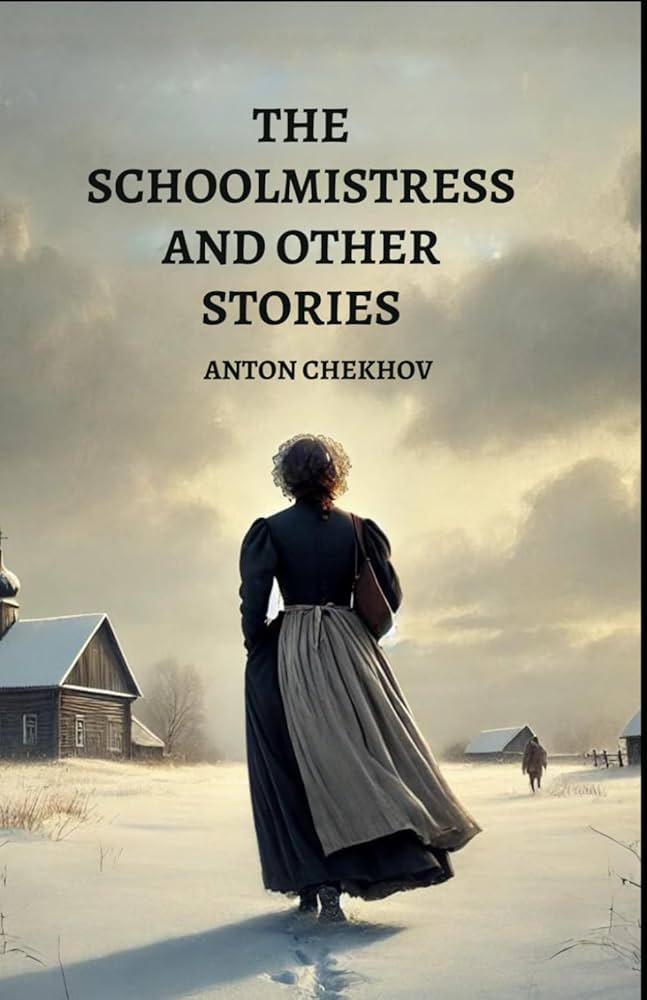IN THE COACH-HOUSE
byIn the Coach-House opens with the gentle creak of old wheels and the hushed tones of men passing time with cards while the estate sleeps. The soft rustle of sleigh harnesses and flicker of oil lanterns offer the only light in the otherwise dim, dust-scented air. Stepan, the coachman, presides over the game while Mihailo the porter brings news from the main house—news sharp enough to still hands mid-play. A tenant has died by his own hand. The details trickle in like cold air through the wooden beams. Each man sits straighter, knowing that death, when near, steals the warmth from even familiar places. Their card game is forgotten, overtaken by the weight of a life just ended.
As they speak of the dead man—bright, reserved, consumed by unread letters and long silences—the conversation shifts to deeper fears and beliefs. The porter, firm in his convictions, speaks of damnation. Suicide, he says, damns the soul, barring it from peace or prayer. The old herring vendor, Nikandr, nods solemnly, invoking stories from his youth of similar fates and the chilling consequences that followed. His voice is calm but carries the weariness of one who has buried many and seen grief settle into bones. Alyoshka, just a boy, listens wide-eyed. What began as an ordinary night has turned into a lesson in mortality, a lesson he cannot fully grasp but will never forget.
Later, as Nikandr and Mihailo leave the coach-house, their figures swallowed by the dark yard, the coachman remains by the faint glow of the lantern. Alyoshka clings to him, whispering questions he cannot answer. The house across the garden glows dimly with candles; preparations are being made. Women walk like shadows through its rooms, and the sound of soft weeping leaks into the wind. From a boy’s view, death had always seemed distant, something whispered about or prayed against. But tonight, it feels terribly close. The cold is no longer just the air but something heavier, something pressing down on every word and silence.
The porter returns with updates too painful to linger on. The father of the deceased sits without moving, his face pale and fixed. He has not cried. No one dares to speak to him directly. His wife’s sobs echo behind doors. Neighbors come and go, some crossing themselves, others leaving quickly as though the house itself repels comfort. Among the murmurs are thoughts of guilt—was it loneliness, unrequited love, or simply a heart overwhelmed by life? The group can only guess, and each guess feels like an invasion. What they do know is that something fragile broke inside that house, and no one can put it back.
In the stillness that follows, the characters left behind in the coach-house begin to wrestle with what it all means. Death has taken someone unexpected, not by illness or age, but by despair. The line between reason and madness feels thinner than they had believed. Even the herring vendor, a man hardened by years and salted winds, admits he fears such moments the most—when a person sees no other path forward. Religion offers some answers, but even that comfort feels thin tonight. Between belief and sorrow lies a wide space that no words can bridge, and they sit together in that silence, unable to do anything but wait for the sun.
When dawn does come, the coach-house will return to its chores, and life will move forward in quiet increments. But something will remain changed. Alyoshka, now less a boy than before, will remember the hush in the voices, the way grown men looked unsure, the way the porter avoided his eyes. In the coach-house that night, death was not only discussed—it was felt. This chapter in their lives, wrapped in candle smoke and unfinished prayers, will mark the edge of understanding for many of them. What they witnessed wasn’t just the end of a life—it was the sudden and terrifying awareness that even the strongest can fall silently, without warning.

